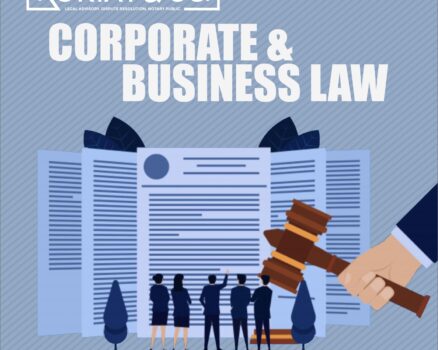- What is a Bureau de Change?
A Bureau De Change (“BDC”) is a registered business licensed by the Central Bank of Nigeria (“CBN”) to carry out or facilitate the sale, purchase or exchange of foreign currencies. A BDC is defined by the CBN’s REGULATORY AND SUPERVISORY GUIDELINES FOR BUREAUX DE CHANGE OPERATIONS IN NIGERIA 2024 (“CBN Guidelines”) as a company that is licensed to carry on small scale foreign exchange business in Nigeria and whose sole object is the carrying on of such business on a stand-alone basis.
According to the 2024 CBN Guidelines, a BDC may do the following:
a. Acquire foreign currency from the sources listed in Section 5.0 of the CBN Guidelines.
b. Sell foreign exchange as detailed in Section 6.0 of the CBN Guidelines.
c. Open foreign currency and Naira accounts with Commercial or Non-Interest Banks (CNIBs).
d. Collaborate with its bankers to issue prepaid debit cards.
e. Serve as cash-out point for International Money Transfer Operators (IMTOs).
f. Engage in any other permissible activity that the CBN may specify.
It is an offense to carry on the business of a BDC in Nigeria except with prior authorization of the CBN.
Please note that there two tiers of BDC licence under the CBN Guidelines: Tier-1 and Tier-2 licences with N2 Billion and N500 Million share capital as part of their respective application requirements. The key differences between the tiers of BDC licences are as follows:
| S/N | Tier-1 BDC Licence | Tier-2 BDC Licence |
| 1 | Requires N2 Billion share capital which must be deposited with the CBN | Requires N500 Million share capital which must be deposited with the CBN |
| 2 | May operate in any State of the Federation and the Federal Capital Territory (FCT). | Permitted to operate only in one State of the Federation or the FCT |
| 3 | May establish branches and appoint franchisees in any State and FCT, subject to the written approval of the CBN. | Allowed to establish five (5) branches in a State of operation, subject to the written approval of the CBN. |
| 4 | Shall maintain a minimum distance of one (1) kilometre between its branches, its branch and a franchisee, and between its franchisees. | Required to maintain a minimum distance of one (1) kilometre between its branches. |
| 5 | May grant franchise in accordance with the franchising standards prescribed in Paragraph 12.0 of the CBN Guidelines. Please note that a Tier-1 BDC licencee shall exercise oversight on its franchisees. All franchisees shall adopt their franchisor’s name, logo, branding, technology platform and regulatory rendition requirements. | Not allowed to appoint franchisees. |
| 6 | Board composition of minimum of 5 directors and maximum of 7 directors.
A Tier 1 BDC shall have an Executive Director (ED) other than the MD/CEO. |
Board composition of minimum of 3 directors and maximum of 5 directors. A Tier 2 BDC may have an ED apart from the MD/CEO. |
| 7 | The Managing Director/Chief Executive Officer (MD/CEO) of a Tier 1 BDC shall possess:
i. A minimum of first degree or its equivalent in any discipline. ii. A minimum of ten (10) years post-graduation experience, out of which at least five (5) must have been in the financial services industry, and at least three (3) at the senior management level. |
The Managing Director/Chief Executive Officer (MD/CEO) of a Tier 2 BDC shall possess:
i. A minimum of first degree or its equivalent in any discipline. ii. A minimum of five (5) years post-graduation experience, out of which at least three (3) must have been in the financial services industry, and at least two (2) at the senior management level. |
| 8 | The Business Plan of a tier 1 BDC must include Branch Expansion Programme within the first five (5) years of operation. | Branch Expansion Programme is not required. |
- Who is Eligible to own a BDC in Nigeria?
The following shall not be allowed to participate in the ownership of BDCs, directly or indirectly:
a. Commercial, merchant, non-interest and payment service banks.
b. Financial holding companies.
c. Other Financial Institutions (OFIs), including International Money Transfer Operators and payment service providers.
d. Serving staff of financial services regulatory and supervisory agencies.
e. Serving staff of regulated financial services providers.
f. Government at all levels.
g. Public officers as defined in the 5th Schedule Part IV of the Constitution of the Federal Republic of Nigeria.
h. Non-Governmental Organizations.
i. Cooperative societies.
j. Charitable organizations.
k. Academic and religious institutions.
l. Non-Nigerian natural persons.
m. Non-resident non-regulated companies.
n. Telecommunication services providers.
o. Sanctioned individuals and entities.
p. A shareholder in another BDC (whether directly or indirectly).
q. Any other persons that the CBN may from time to time designate.
3. What are the financial requirements for obtaining a BDC licence?
The financial requirements for the BDC applications for AIP and Final Licence are as follows:
[a] Minimum paid-up share capital – N35 million share capital (this amount is to be deposited with CBN in bank draft and will be refunded upon the grant of the final licence, with interest, if any);
[b] Non-refundable application fee – N100,000 (payable at the AIP application stage);
[c] Non-refundable licensing fee – N1,000,000 (payable at the Final Licence application stage)
[e]Non-refundable annual licensing renewal fee – N 250,000 [payable not later than 30 days after the end of each calendar year]
[f] Non-refundable change of name fee – N100,000 (payable to CBN before any change of business name at the CAC).
[g] Solicitor’s fees for the incorporation at CAC and processing the applications for AIP and final licence to CBN.
[f] Miscellaneous expenses for preparing feasibility report or business plan, the AML/CFT Policy and Compliance Manual, the CAC registration costs, etc.
4. What is the timeline for completion of the application process?
The AIP is usually granted between 3 to 6 weeks after submission of application all other things being equal. The final licence is granted after 6 months of the grant of the AIP. The registration of the company takes around 3 to 6 weeks but usually completed within the 6 months after the grant of the AIP before submitting application for the final licence.
5. What are the Requirements for BDC licence?
The application for BDC licence is processed in two stages, namely: the Approval-In-Principle (“AIP”) stage (usually for 6 months); and the Final Licence stage (which must be applied for not later than 6 months after the grant of the AIP).
Please note also o proposed BDC shall incorporate/register its business name with the Corporate Affairs Commission (“CAC”) until an AIP has been obtained from the CBN, a copy of which shall be presented to the CAC. The licensing requirements for the two stages differ but below is the highlight of the requirements:
(a) A formal application to the CBN Governor to grant the promoters an AIP to carry on the business of a BDC in Nigeria with Evidence of Name Reservation with the CAC. The application should be addressed to the Director Financial Policy and Regulation Department (FPRD), Central Bank of Nigeria PMB 0187, Garki, Abuja.
The promoters of the BDC shall attach the following documents to their application:
(b) A non-refundable application fee of N1,000,000 (for Tier-1 licence) or N250,000 (for Tier-2 licence).
(c) Evidence of payment of the prescribed minimum capital in the sum of of N2,000,000,000 (for Tier-1 licence) or N500,000,000 (for Tier-2 licence) made through RTGS to a designated account in the CBN. Please note that the CBN shall refund this amount with interest after the proposed institution has obtained its final licence.
(d) A copy of business plan or feasibility report containing the relevant information;
(e) A copy of the draft Memorandum and Articles of Association of the proposed BDC.
(f) A letter of intent to subscribe to the shares of the proposed BDC signed by each subscriber.
(g) A List of proposed shareholders in tabular form, showing their email, business and residential addresses; names and addresses of their bankers, their bank verification numbers (BVNs) for individuals or tax identification numbers (TINs) for corporates, and percentage shareholding;
(h) Satisfactory, verifiable, and acceptable evidence of capital contributed by each of the prospective shareholders of the proposed BDC;
(i). Notarized irrevocable capital refund mandate;
(j) Evidence of payment of non-refundable application fee made through the Real Time Gross Settlement System (RTGS) to a designated account in the CBN;
(k) List of proposed directors in tabular form, showing their email, business and residential addresses, names and addresses of their bankers, and their BVNs;
(l) List of companies/businesses related to the proposed shareholders and directors, if any, indicating the nature of the relationship and size of shareholding where applicable;
(m) Draft copy of the Memorandum and Articles of Association prepared using the standardized template attached as Appendix 2.
(n) For each significant prospective shareholder that is a natural person, the following must be provided:
i. Personally signed letter of intent to invest in the proposed BDC, addressed to the Director, Financial Policy and Regulation Department;
ii. Personally signed and dated Curriculum Vitae (CV);
iii. Personally completed, signed and dated Questionnaire for Major Shareholders and Appointees to Board and Management Positions (see Appendix 3 of the CBN Guidelines);
iv. Copy of valid means of identification;
v. Bank verification number;
vi. Notarised statement of net worth;
vii. Tax clearance certificate of the last three (3) years;
viii. Letter(s) from bankers, indicating the status of any facility extended to the shareholder;
ix. Credit reports from at least two (2) private credit bureaux on the shareholder;
x. For shareholders resident in Nigeria, a certificate/statement of good conduct from the Nigerian Police Force;
xi. For non-resident shareholders, a certificate/statement of good conduct from the police service (or other appropriate authority) in the country of residence;
xii. Evidence of share capital contribution;
xiii. Explanation of the source of funds used for share capital contribution;
xiv. Confirmation of the shareholder’s direct and indirect shareholding interest in other CBNregulated financial institutions; and
xv. A statement clarifying the interest represented by the shareholder.
(o) For institutional shareholders, promoters shall forward the following additional documents:
i. Profile of the investor(s);
ii. Certificate of Incorporation, Status Report, MEMART, and CTC of other relevant incorporation documents issued by the CAC;
iii. Resolution of shareholders approving the decision to invest in the equity shares of the proposed BDC;
iv. Names and addresses (business and residential) of owners, directors and their related companies, if any;
v. Audited financial statements of the last three (3) years;
vi. Tax Clearance Certificate of the last three (3) years;
vii. Names and details of the beneficial owners of the company;
viii. Names, addresses, profiles, and bank details including BVN and/TIN of the beneficial owners of the company;
ix. A statement confirming its direct and indirect shareholding interest in any other CBN regulated financial institution(s) if any; and
x. “i – ix” above for any significant corporate shareholder of the investor company (i.e. a corporate investor holding up to 5% of the shares of the BDC company).
(p) For regulated foreign institutional investors, promoters shall forward the following documents in addition to those required in ‘x’ above:
i. An approval or a ‘no objection’ letter from the appropriate regulatory authority in the home country; and
ii. Certificate of Capital Importation (CCI) on the imported capital.
(q) All requirements detailed in the CBN’s Guidelines for Licensing of Banks and Other Financial Institutions – Anti-Money Laundering, Combating the Financing of Terrorism and Countering Proliferation Financing of Weapons of Mass Destruction, including:
i. Completed and personally signed Beneficial Owners Declaration Form (attached as Appendix 4).
ii. Notarised statement of net-worth for all beneficial owners.
iii. Curricula vitae of beneficial owners.
iv. Draft AML/CFT/CPF compliance policy/manual, which shall at a minimum cover: (a). Compliance structure including designation and status of compliance officer; (b). Employee screening and monitoring; (c). Customer identification and verification; (d). Customer due diligence measures; (e). ML/TF/PF Risk Assessment; (f). AML/CFT/CPF Training of the board, senior management and other employees; (g). Independent assessment of the AML/CFT/CPF Programme; and (h). Suspicious transaction monitoring, reporting and record keeping.
(r) For each proposed director, the following must be provided: (i). Personally signed letter of consent to serve as director of the proposed BDC, addressed to the Director, Financial Policy and Regulation Department; (ii). Personally signed and dated Curriculum Vitae (CV); (iii). Personally completed, signed and dated Questionnaire for Major Shareholders and Appointees to Board and Management Positions (see Appendix 3 of the CBN Guidelines); (iv). Copy of valid means of identification; (v). Bank verification number; (vi). Notarised statement of net worth; (vii). Tax clearance certificate of the last three (3) years; (viii). Letter(s) from bankers, indicating the status of any facility extended to the director; (ix). Credit reports from at least two (2) private credit bureaux on the director; (x). Three (3) letters of reference from persons of reputable standing in Nigeria; (xi). For directors resident in Nigeria, a certificate/statement of good conduct from the Nigerian Police Force; (xii). For non-resident directors, a certificate/statement of good conduct from the police service (or other appropriate authority) in the country of residence; (xiii). A statement clarifying other directorships held by the director; (xiv). Confirmation of the director’s direct and indirect shareholding interest in other CBN regulated financial institutions; and (xv). A statement clarifying the interest the director will represent on the board.
s. Organisational structure, showing functional units, responsibilities, reporting relationships and grade (status) of heads of departments/units;
t. Draft Shareholders’ Agreement providing for disposal or transfer of shares as well as authorisation, amendments, waivers, and reimbursement of expenses, among others;
u. Draft manuals and policies, including: i. Enterprise-wide Risk Management Framework; ii. Whistle Blowing Policy; iii. Code of Ethics and Business Conduct; iv. Business Continuity Plan; v. Operational Manual; vi. Treasury Manual; vii. Board and board committees’ Charters; viii. The draft Business Continuity Plan of the proposed BDC; ix. The proposed training programme for Board, management and staff; x. Management succession plan; xi. The organisational structure of the BDC, setting out in detail, the functions and responsibilities of the top management team; xii. Franchising Policy (for proposed Tier 1 BDCs only); and xiii. Internal Control Policy; and
v. Any other documents/information that the CBN may require from time to time
After consideration of the application and the above supporting documents, the CBN may grant an AIP which usually lasts for 6 months.
Upon the grant of the AIP, the promoters may then proceed to register the BDC company with the CAC.
Not later than six (6) months after the grant of AIP, the promoters of a proposed BDC are required to submit application for the grant of a final licence to the Governor of CBN, Abuja, and accompany same with the following documents:
[i] Evidence of payment of a non-refundable licensing fee of N5,000,000 (for Tier-1 licence) or N2,000,000 (for Tier-2 licence);
[ii] The names, designations and signed Curricula Vitae (CV) of the proposed members of the top management of the BDC.
[iii] Evidence of incorporation of the BDC company with CAC;
[iv] Evidence of having suitable office accommodation for the operation of the proposed BDC.
[v] Any other conditions as may be specified in the CBN’s AIP letter
Thereafter, the Governor may grant a final licence to the BDC subject to the fulfillment of certain conditions. The BDC shall comply with those conditions to the satisfaction of the CBN within such period as the CBN may specify.
***************************************************************
For further information, contact us via 09067842241 or admin@koriatlaw.com.





